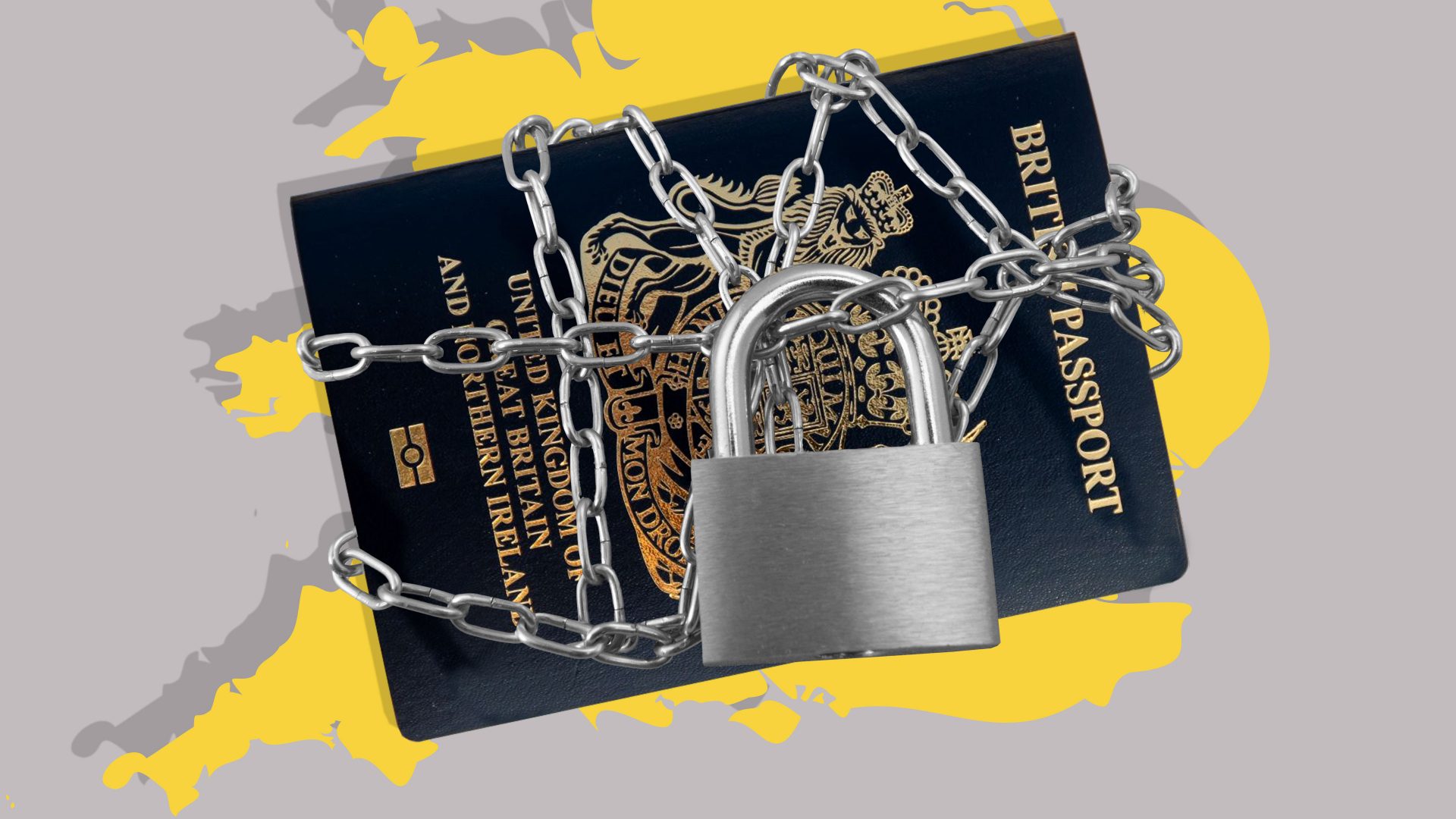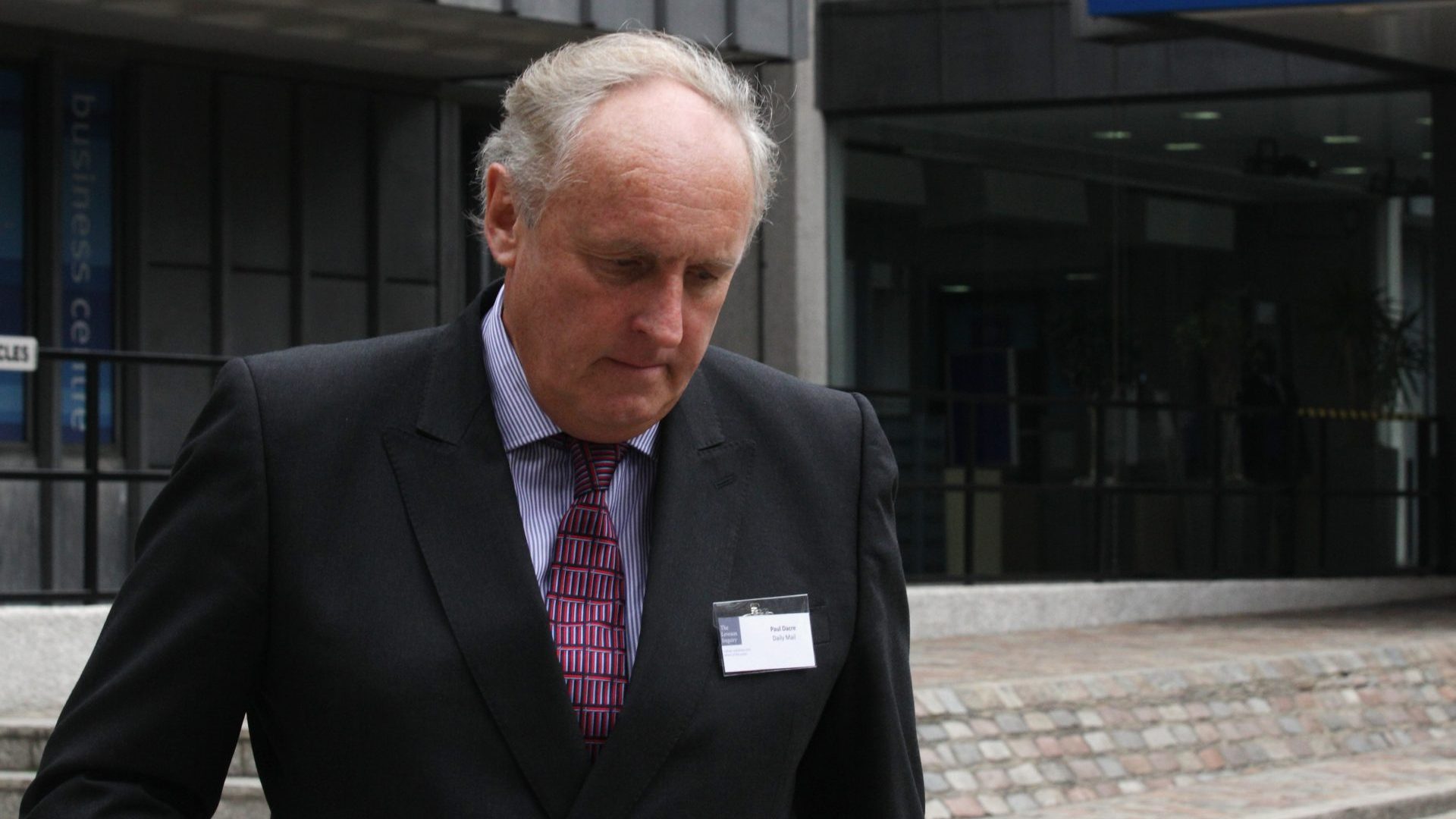The phrase Liz Truss, prime minister, has emerged from our darkest nightmares into the daylight of reality. As she measures up for Downing Street curtains and goes shopping for wallpaper remover, the idea of sneaking out of the country looks very attractive, but seems impossible. If only Brexit – which Truss opposed but now supports – hadn’t made it so difficult to escape.
But even in the grimmest times, there’s a glimmer of light. We may no longer be in the European Union, but Europe is still there. Look hard enough, and there are ways to sit out the Truss premiership by the sea, with a glass of sangria in hand.
“Brexit certainly made life more difficult for people trying to move to Europe,” says Nigel Ayres, chief executive of the Expat Network portal. “You now have to go and find a job and the employer has to apply for the right to employ you.” That’s a sharp contrast to the pre-Brexit system, where “you could just walk in and start looking for work”. Even so, you can still do it. “There are ways,” he says.
First, what you can’t do. Because the UK, once an integral part of the EU, is now a mere third country – along with Burkina Faso, El Salvador, Cuba and Myanmar – British citizens can no longer cross the Channel and find work later. The same goes for EU workers coming into Britain. Thank you, Brexiteers. How’s your home plumbing doing now?
But if you happen to be a plumber, Europe’s your oyster – sort of. Many countries allow those with special practical skills into the country to fill shortages, and plumbers, along with electricians and construction workers, are among the most sought-after professionals of all. Plumbing Trade Magazine even ran an article suggesting you could double your earnings by moving to Germany, although now you must show proof of prospective work and income.
“There are extra hoops and bureaucracy that you have to go through, which will be a deterrent to many,” said Daniel Tetlow, co-founder of the British citizens’ campaign group British in Germany.
“But in reality the doors are not closed in Europe at all – quite the opposite. There’s nothing stopping anyone coming to Europe to find work and they’re likely to get the visas they require to stay, because Germany, France, Spain (and other destination countries) are reaping the benefits of this new British European migration.”
Official statistics show Germany has seen a record number of Britons applying for passports – more than 35,000 granted dual citizenship since the referendum, according to a study by Oxford in Berlin and the WZB Berlin Social Science Centre, which Tetlow co-authored. In 2019, 14,600 people became citizens compared with 515 in 2014. He estimates that between 150,000 and 200,000 Britons live in Germany now, far more than official German figures indicate.
Many other EU countries, with their ageing populations, still need workers in many disciplines, from service and agricultural workers to highly skilled professionals.
Some nations recently tweaked their immigration rules to reflect this, including Finland. In June it started fast-tracking its work visa applications, including for entrepreneurs, in order to compete in what the labour minister, Tuula Haatainen, called the “tough race in the world for a skilled workforce.” The range of shortage occupations is wide – car mechanic, business consultant, GP, engineer and speech therapist are all in the top 10.
Denmark also updated its own roster of professions where there is a shortage of personnel. The list now comprises 91 job titles, including lab technician, the ubiquitous plumber, shipping agent, town planner, university professor, social education worker and radiologist.
This all sounds like good news, but the main competition for those positions comes from within the EU and for employers, EU applicants are now easier and cheaper to absorb than Brits. This is a significant consideration when the global energy crisis is hitting Europe’s economies and there is anecdotal evidence of Brits losing job offers within the EU for that reason. An additional problem is that UK professional qualifications may no longer be recognised. This applies to a whole range of professions including law, finance, medicine and manual qualifications and may well require the rigmarole of retraining or earning new certification.
Since the UK left the single market and British banks have lost their “EU passporting” rights, this constrains how UK financial organisations can operate on the continent. For one thing, British banks are no longer allowed to solicit business in EU countries, meaning expats can be at risk of losing access to their bank accounts. Jason Porter, director of the expat financial advisory company Blevins Frank, said in June that several UK banks had sent letters to Britons living abroad saying their accounts would be closed.
So, how can you get out of Truss’s Britain? The simplest way to move is with your existing employer, who can take on all the costs and bureaucracy. But they’ll need a good reason for your move, and “I need to get away from Liz Truss and her weird cabinet” might not cut it. Besides, getting a work visa can take months – by which time Truss could have hailed 25 more trade deals undercutting British workers, or sold the NHS, or both. If you need to get out before Truss takes her first PMQs, you need faster options.
One of the most obvious, since remote working gained currency during the pandemic, is a digital nomad visa, which allows the holder to work flexibly as long as they can prove the ability to support themselves. It’s usually relatively quick and simple to obtain, has few tax complications – normally you just pay in your country of residence – and requires little more than health insurance, proof of a place to stay and a background check. These visas allow you to work for anything from six months to around two years, with options to renew if Truss hasn’t gone by then.
Still, there may be a monthly income requirement, which could put some countries out of reach for the patchily-paid freelance. For Hungary you need to clear €2,000 (£1,700) a month; in Malta, it’s €2,700 (£2,300). Iceland, trying to cream off the richest, demands at least €7,550 (£6,500).
The pioneers of this kind of visa, unsurprisingly, are the tech-savvy Estonians, who have made their state so digital they could probably run the whole government remotely from a beach in South America. Estonia introduced their digital nomad visa in August 2020 and, given their technoenthusiasm, spaces for co-working and support for start-ups, offer good conditions for remote workers.
Their visa website even gives advice on whether this lifestyle is for you and, if so, how to succeed. The catch – you must show you can make €3,504 gross monthly to be considered.
Although a growing category, specific digital nomad visas don’t exist everywhere, so you need alternative ways of doing the same thing, albeit in a more complicated manner. In Italy, you need one of its self-employed visas, which allows you to enter the country before applying for further authorisation. In Germany, those from third countries must apply for the more specific freelance, or Freiberufler, visa – which actually means someone in a “liberal profession”, a definition that covers a wider range of jobs than you might think, including lawyers, accountants, school teachers, doctors and psychologists. Germany’s self-employed, or Gewerbetreibender visa, covers “traders, caterers, crafts people or producers of goods.”
One of the most popular European destinations for digital nomads – and overall – is Portugal. Lisbon topped the charts as favourite European destination for members of Nomad List, which offers help, advice and a community for digital nomads, while Porto came in third, after Berlin. The weather, lifestyle and cost of living in Portugal all act as a draw. Here, the D7 passive income visa is the one you want. It requires you to provide proof of your “passive” income – money not earned in Portugal – which must equal at least the Portuguese minimum wage of €9,870 a year.
Spain is developing a digital nomad visa, but for now requires a visa that allows freelancing and contract work. You also need to prove that you have savings in your bank account or that you receive a steady monthly income of above €2,316. Other countries, including Malta, Croatia and Romania, have announced plans for digital nomad visas.
As the concept grows, the profile of digital nomads has changed. They’re no longer just twentysomething, rootless, techy types. Everyone’s joining in.
Ayres, who lives in Spain, says he shares co-working space with an estate agent, whose business is based in the UK, and the boss of a loan company. “It’s not just your young kid living on a laptop but serious business people who are working from abroad rather than at home. They have their families out here and put children in local schools,” he says.
If a run-of-the-mill job or a digital nomad gig doesn’t work for you, you could always get your chequebook out. Just as the British government welcomed all those rich Russians wanting to live in Mayfair, other European countries will welcome you for your money. Countries including Italy, Austria, Bulgaria, Luxembourg and Latvia now offer some sort of investment-for-residency exchange.
In Cyprus, a property investment of €300,000 will lead to permanent residency for you, your spouse and any dependent children under 25. Find $2m (£1.7m) and you can have EU citizenship too – an option also offered elsewhere, with varying conditions.
Greece offers a five-year residence visa, which can be renewed, for you and your dependents in return for a property investment of €250,000 (plus tax).
Portuguese or Spanish residency requires a €500,000 property investment.
You can also buy into Malta through its Individual Investor Programme, by purchasing a mix of stocks, bonds and property (or renting) as well as a contribution to the government. That should come in at €1m or more, especially if you have family.
Or you could just spend €1. In July, the Sardinian village of Bonnanaro joined a growing cohort of rural Italian villages offering €1 homes. Economically left behind, these villages have been emptying out as the young chase jobs in the wealthy northern towns and cities of mainland Italy. These villages have resorted to ingenious measures to keep communities alive, including welcoming and training refugees. The province of Molise made headlines in 2019 by offering €27,000 a year to anyone prepared to move there, buy a house and set up a business. Although each village has its own conditions, they invariably require renovation that can cost tens of thousands of pounds as well as taxes and payments for architects and lawyers. It’s quite a commitment and doesn’t always work. Danny McCubbin, a digital consultant and food campaigner who worked for the Jamie Oliver Foundation, sold his €1 property because of soaring fees and a shortage of builders during the pandemic. He now lives in and works elsewhere in Italy.
Another way in is to be old. Retiring to Europe has long been a dream for many Brits, who seek out the lower cost of living and warmer weather of countries on the Mediterranean, such as France, Spain, Cyprus, Malta and Monaco. But Brexit has changed all that, requiring visas, forms, income thresholds and all kinds of irritating bureaucracy and charges.
This could hit retirees in Spain, where the British state pension is no longer enough to qualify under residency rules that come with an income threshold of €2,316.08 a month, with €579.02 for each additional family member. That hasn’t stopped Brits moving to Spain. According to data from Statista, the number of Britons holding Spanish residency permits jumped after Brexit, from 286,753 in 2019 to 313,975 in 2020. But newer arrivals are likely to be wealthier. Others might look at France and Portugal, where the threshold is lower, or even eastern Europe. Bulgaria’s long-term Type D visa covers pensioners, investors, students and workers, allows you to stay in Bulgaria – enjoying its countryside, coast, skiing and history – and apply for residency.
Even so, with la Truss in No 10, is even the farthest edge of Europe far enough? On the numerous websites of organisations prepared to help you emigrate, there is one country that seems reliable, welcoming, and which is literally at the other end of the earth. Go to New Zealand, and you wouldn’t need to hear from Truss for years.




